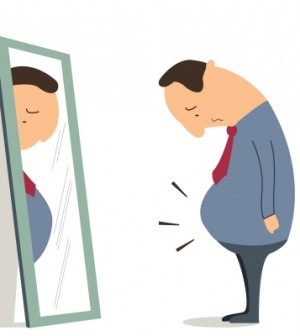Gender and Social Inequality

Let’s open this section with a bit of humor. A couple years ago I read the following list:
IF MEN GOT PREGNANT
1. Maternity leave would last two years – with full pay.
2. Men would stay in bed during pregnancy.
3. All methods of birth control would be 100% effective.
4. Natural childbirth would be obsolete.
5. Newborns would be kept in the hospital until toilet-trained.
6. There would be a cure for stretch marks.
7. Morning sickness would rank as the nation’s No.1 health problem.
8. People wouldn’t think twins were so cute.
9. Triplets would be subsidized by the federal government.
10. Briefcases would be designed so they could double as diaper bags.
11. Paternity suits would be a fashion line of women’s apparel.
12. All male children could have to be home by 10 p.m. (Image courtesy of Ambro/FreeDigitalPhotos.net)
Of course this is meant to be funny and it is, well, it is if you don’t really think about what it is implying. The idea is that since men are in charge of, essentially, our world (make the major decisions and control our major institutions), if they were the ones who were to bear children then pregnancy and maternity (although we would probably call it paternity) would be very different. Would we view pregnancy and maternity differently (symbolic interactionism)? Would there be less institutional discrimination attached to motherhood (conflict theory)? Would men be primarily responsible for our children (structural functionalism)?
Gender Inequality
There is no nation in which men and women are equals. We can see inequality at a macro-level (economy and institutions) as well as the micro-level (interpersonal relations). Gender is the basis for dividing labor, assigning roles, and allocating social resources, rewards, and opportunities. Of course the effects of our sex and subsequent gender depends on our environment as well as specific social conditions.
Study Questions:
What is gender inequality? What is the functionalist perspective of gender inequality? What is the conflict perspective of gender inequality? What is the symbolic interactionist perspective of gender inequality? What is institutional discrimination? Explain how there is institutional discrimination within the following institutions today: education, media, economy and the workplace, the military, politics and religion. What are some examples of global gender inequality?
RESEARCH:
“Smart Women Are Ugly? A Study of Overseas Taiwanese Ph.D. Students Regarding Beauty”
By Chien-Juh Gu, Department of Sociology, Michigan State University
To quote a few of the individuals who were interviewed in this study is ‘…There are no beautiful women at National Taiwan University.’ The women who attend this university are deemed “unattractive”. The view was that there is an inverse relationship between intelligence and beauty.
Method: interview
Sample: 22 Taiwanese Ph.D. students (males and females)
Topic: women’s beauty and knowledge
Findings:
“…men placed greater value on women’s femininity and beauty than on their achievement and intelligence.” Many stated that if a Taiwanese woman wants to earn a Ph.D. she is likely to study abroad so as to avoid being stigmatized; however, these women have difficulty marrying when they return. Taiwanese women are expected to marry. Those women who continue their education do so at a great “social cost”. These women are labeled as “old women”. One of the men interviewed stated that he wanted to “marry down,” he wanted to marry a younger woman who had less education than him. Another man stated that he “…would never marry a Ph.D., since a too-intelligent woman will argue with me all the time, while a tame and beautiful one will listen to me and admire me.” It was concluded that these Taiwanese women’s gender roles “…rather than their academic achievement, are emphasized and even supervised by the society.”
What is your reaction to this study? Which of our social theories emerged from these findings? How does/did our society “supervise” your gender role adoption? If you are a woman, what types of social inequalities have you experienced? What social inequalities do you think you might experience in the future? If you are a man, what types of social inequalities do you think women in our society endure or will endure in the future?
Links:
Rosie the Riveter:
http://en.wikipedia.org/wiki/Rosie_the_Riveter
National Organization for Women:
http://www.now.org/
About admin
Teaching Sociology is very enjoyable for me. Sociology is like a gateway to a plethora of knowledge and understanding. The subject material is directly applicable to real-world events and situations found in everyday life. The methods and concepts of sociology yield powerful insights into the social processes shaping the contemporary world. The ability to identify and understand these processes is valuable preparation for professional participation in an ever changing and complex society.Related Posts
Latest News
-
Sociology and the Pursuit of Social Justice: A Compelling Reason to Study It
Sociology is a fascinating field of study that delves into...
- Posted May 31, 2023
- 0
-
The Power of Sociology: Understanding the Importance of Social Structures
Sociology is the scientific study of society, social relationships, and...
- Posted May 31, 2023
- 0
-
FACT FINDING MISSIONS
Life is interleaved with contracts and agreements, the formal and...
- Posted August 10, 2018
- 0
-
The Many Churches of Enhancement
Throughout history religions formed around prophetic doctrines and absorbed people...
- Posted April 6, 2018
- 0
-
TAKE A SECOND TO CONSIDER THE SECOND
Remember that during the late 1700’s when the young US...
- Posted February 21, 2018
- 0
-
WHAT’S ON THE TABLE FOR IMMIGRATION
Deliberating in upcoming months will be a new proposal for...
- Posted February 12, 2018
- 0
-
Time-saving Tips from Your Instructor
Here are some helpful tips: Involve your family/friends. Let them...
- Posted October 19, 2016
- 0
-
Sociology and the Pursuit of Social Justice: A Compelling Reason to Study It
Sociology is a fascinating field of study that delves...
- May 31, 2023
- 0
-
The Power of Sociology: Understanding the Importance of Social Structures
Sociology is the scientific study of society, social relationships,...
- May 31, 2023
- 0
-
FACT FINDING MISSIONS
Life is interleaved with contracts and agreements, the formal...
- August 10, 2018
- 0
-
Successful Families
SUCCESSFUL FAMILIES Balancing Work and Family (dual-earner families) 1.Value...
- June 16, 2011
- 0
-
Sociology of Marriage
Types of “Good” Marriages: Romantic Marriage: passion and sex...
- June 16, 2011
- 0
Sociological Theory
-
Symbolic Interactionism
Symbolic interactionism focuses on how individuals communicate with one another, the basis...








